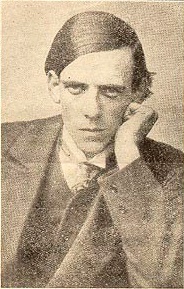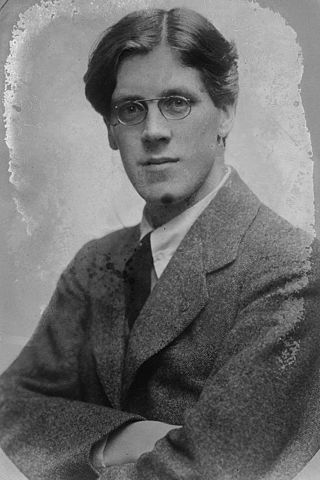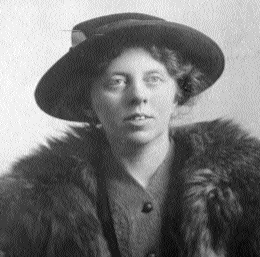
Bertrand Arthur William Russell, 3rd Earl Russell, was a British mathematician, philosopher, logician, and public intellectual. He had a considerable influence on mathematics, logic, set theory, linguistics, artificial intelligence, cognitive science, computer science, and various areas of analytic philosophy, especially philosophy of mathematics, philosophy of language, epistemology, and metaphysics.

A conscientious objector is an "individual who has claimed the right to refuse to perform military service" on the grounds of freedom of thought, conscience, or religion. The term has also been extended to objecting to working for the military–industrial complex due to a crisis of conscience. In some countries, conscientious objectors are assigned to an alternative civilian service as a substitute for conscription or military service.

James Maxton was a British left-wing politician, and leader of the Independent Labour Party. He was a pacifist who opposed both world wars. A prominent proponent of Home Rule for Scotland, he is remembered as one of the leading figures of the Red Clydeside era. He broke with Ramsay MacDonald and the second minority Labour government, and became one of its most bitter critics. As the leader of the Independent Labour Party (ILP), he disaffiliated the ILP from the mainstream party in 1932. Afterwards, he became an independent dissident outside front-line politics.

Archibald Fenner Brockway, Baron Brockway was a British socialist politician, humanist campaigner and anti-war activist.

John Turner Walton Newbold, generally known as Walton Newbold, was the first of the four Communist Party of Great Britain members to be elected as MPs in the United Kingdom.
South African resistance to war has a long tradition, and a history that includes conscientious objectors, pacifists, deserters and draft dodgers, as well as those whose objections are based upon the notion of "just war" as opposed to unjust or illegal war.

War Resisters' International (WRI), headquartered in London, is an international anti-war organisation with members and affiliates in over 30 countries.

Reginald Clifford Allen, 1st Baron Allen of Hurtwood, known as Clifford Allen, was a British politician, leading member of the Independent Labour Party (ILP), and prominent pacifist.
The No More War Movement was the name of two pacifist organisations, one in the United Kingdom and one in New Zealand.
The Labour Leader was a British socialist newspaper published for almost one hundred years. It was later renamed New Leader and Socialist Leader, before finally taking the name Labour Leader again.
Stephen Henry Hobhouse was an English peace activist, prison reformer, and religious writer.

Catherine Elizabeth Marshall was a suffragist and campaigner against conscription during the First World War. She moved from women's votes to peace and worked in Geneva supporting the League of Nations.
The Non-Combatant Corps (NCC) was a corps of the British Army composed of conscientious objectors as privates, with NCOs and officers seconded from other corps or regiments. Its members fulfilled various non-combatant roles in the army during the First World War, the Second World War and the period of conscription after the Second World War.
A Conscientious Objector is an "individual who has refused to take part in the Great War". There were different meanings for this, for example, religious meanings, freedom of thought, conscience, and disability. In many countries Conscientious Objectors are forced to do other services as a substitute for military service. Conscientious Objectors were often seen as cowards. Many people from across the United Kingdom were considered to be Conscientious Objectors during the First World War, and the movement was as pronounced in Wales as in any other part of the county.

Eric Barry Wilfred Chappelow was an English poet and conscientious objector during the First World War. His arrest and harsh treatment during four months of imprisonment garnered support from prominent people in Britain, including Chappelow's connections within the literary community. A campaign for his release was supported by Bertrand Russell, W. B. Yeats, and George Bernard Shaw. His arrest and the treatment were highlighted in the House of Commons by the Liberal MP Philip Morrell.
Leyton Price Richards was an English Congregational minister and prominent pacifist.
Evelyn Hope Squire Merrick (1878–1936) was a British composer, pianist, and political activist who supported women's suffrage, vegetarianism, Esperanto, and new music. She opposed England’s participation in World War I. She published and performed under the names Hope Squire and Hope Merrick.

James Scott Duckers also J. Scott Duckers, was an English lawyer, and prominent pacifist organiser and conscientious objector of World War I. He is now best known for his wartime memoir Handed Over.

Clara Gilbert Cole was an English suffragist, socialist, pacifist, anarchist, poet, and pamphleteer.
Lilla Brockway was a British suffragist, socialist, and pacifist. It was a suggestion of Lilla's which initiated the No-Conscription Fellowship. As such, it has been written that Lilla Brockway "may truly be regarded as the Mother of the British C.O. [conscientious objectors'] movement".












